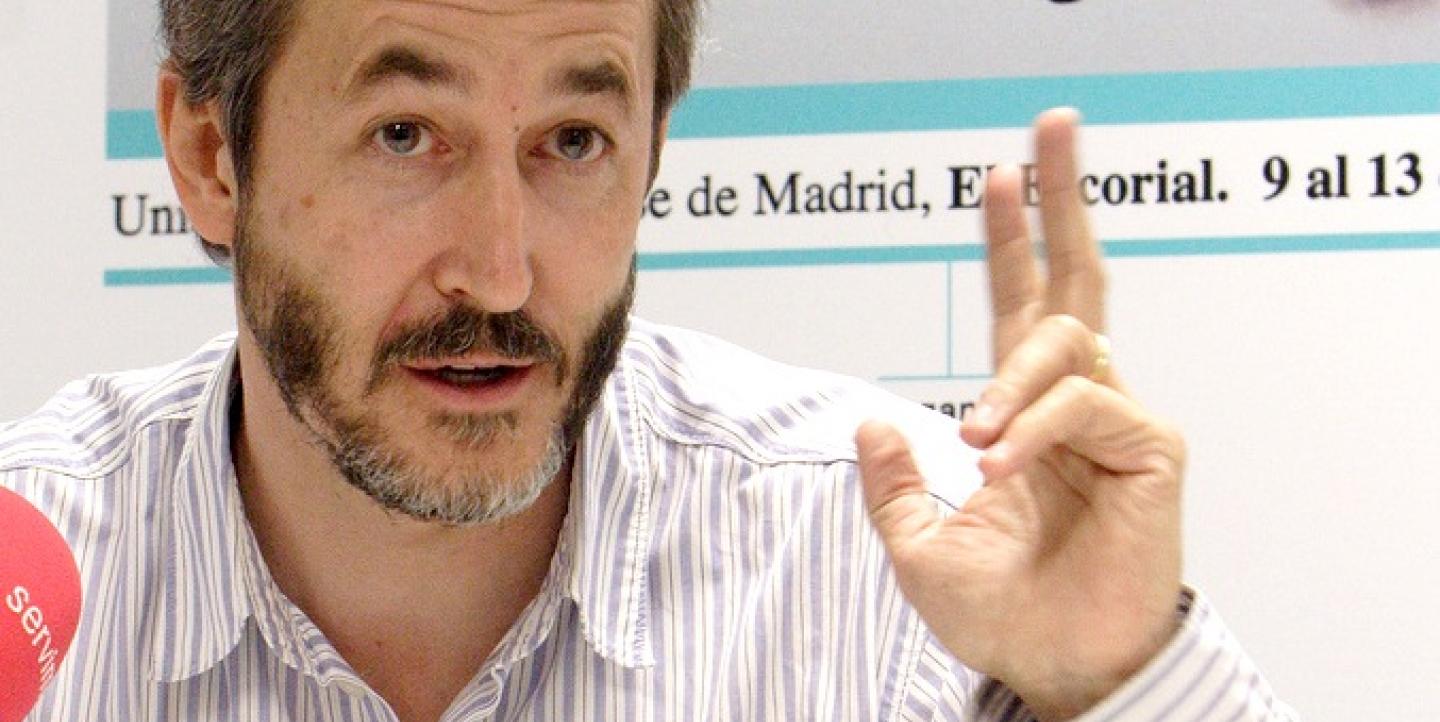Gumersindo Lafuente has been innovating in digital media for more than a decade. Most recently, he launched Por Causa, a nonprofit foundation that uses data journalism to investigate the causes of poverty and inequality.
He talked about his new initiative in Part I of his interview with IJNet, here.
In Part II, below, Lafuente discusses lessons learned from a previous startup, which projects inspire him and why journalists must embrace tech.
IJNet: A few years ago you launched Soitu.es, a project that received many awards for being very innovative but was short-lived due to lack of funding. What lessons did you learn from that project?
Gumersindo Lafuente: Soitu has nothing to do with Por Causa; the time when it was launched was different, and so was the model. Soitu was born in a time that is very different from the one in which we live today. Back then we were, in a sense, at the highest point of the financial bubble. It was a very ambitious project that had a purely journalism side to it and also a side related to technology for journalism.
At that time, considering the economy and the type of funding we got, we decided to make it a very ambitious project.
Our project was certainly so innovative that it would have been a much better fit in today's social media world than when it was born. Soitu was a project almost tailored to the world of Twitter and Facebook. When Soitu was launched, Facebook did exist, but it didn’t have the relevance it has today, and Twitter didn’t exist. Soitu and Twitter were born almost simultaneously.
It is easy to find lessons today when so many years have passed and [the economic crisis in Spain is so deep] but at the time it wasn’t so simple. If it were simple, we wouldn’t have made certain mistakes. I think we did make some mistakes.
Our project was much more interesting and more powerful than we thought, especially the technological aspect of it. And perhaps we failed to realize the full potential of the technology our company had, so that the journalism aspect of it could survive. We didn’t have it easy either. Our shareholder, who was extremely generous at first, didn’t make it easy for us at the end. The violent collapse of the world economy, and of the Spanish economy, didn’t make it simple for us either.
IJNet: Are there any new media startups that have caught your eye?
GL: In Latin America there are a handful of truly thriving new media, that do great journalism, such as El Faro.net in El Salvador, Colombia’s La Silla Vacía or Verdad Abierta.
Some of them are niche sites, others focus on conflict, others on politics…. They are very relevant from the journalism standpoint. They have a problem almost everyone has: funding. Many of them are funded by international foundations, some of them are from the U.S., and they haven’t found a sustainable business model yet.
I think that will come about. There's one in Argentina that I find very interesting: Chequeado.org. Another interesting initiative is Poderopedia in Chile. Some of them are news outlets, others are sites that are dedicated to creating tools to [keep tabs on] the powerful.
Here in Spain, there are new media, like El Diario.es, which has been around for more than a year, and InfoLibre. But although they are very interesting projects, they are still extremely traditional. Because of the economic situation in Spain, it is difficult to find funding for certain types of innovation.
What we see is that traditional media publishers don’t seem to find the way, and they are leaving that field open for innovative people. Things like the purchase of the Washington Post by [Jeff] Bezos will keep happening, and we'll see in the coming months or years how digital millionaires will buy or start news media outlets.
This isn’t really new. In every industrial revolution, the people who made money founded media outlets. That happened in Spain in the late 19th century and happened again in the early 20th century. Those who were successful in business either bought or founded newspapers. Something similar is going to happen now, after years of media outlets being in the hands of families that were passing the baton from generation to generation.
IJNet: What skills do journalists need today? What advice would you give to journalism students?
GL: There are general tips that have to do with being aware that journalism is an extremely delicate job, which you have to [handle carefully] at all times. Also, take into account that our world is now experiencing an absolutely revolutionary change, and therefore there are many issues on which there are no absolute truths.
Third, do not be afraid of innovation, and do not be afraid of technology. A few years ago you would advise a journalist to travel a lot and learn many languages. Today, although it's still important to have curiosity and perseverance, it is essential to understand technology. It's as important today as learning to speak a new language. And understanding that technology is what allows journalism to be competitive and innovative.
For students, besides being passionate about journalism, if they know their way around technology, they will have a much brighter future in journalism.
Maite Fernández is IJNet’s managing editor. She is bilingual in English and Spanish and has an M.J. in multimedia journalism from the University of Maryland.
This interview was conducted in Spanish and translated into English by Maite Fernández.
Photo CC-licensed on Flickr via wicho.
Related content:
Chequeado wants to raise the level of public debate in Argentina.
Data journalism platform will help reporters and citizens reveal links among the elite.

